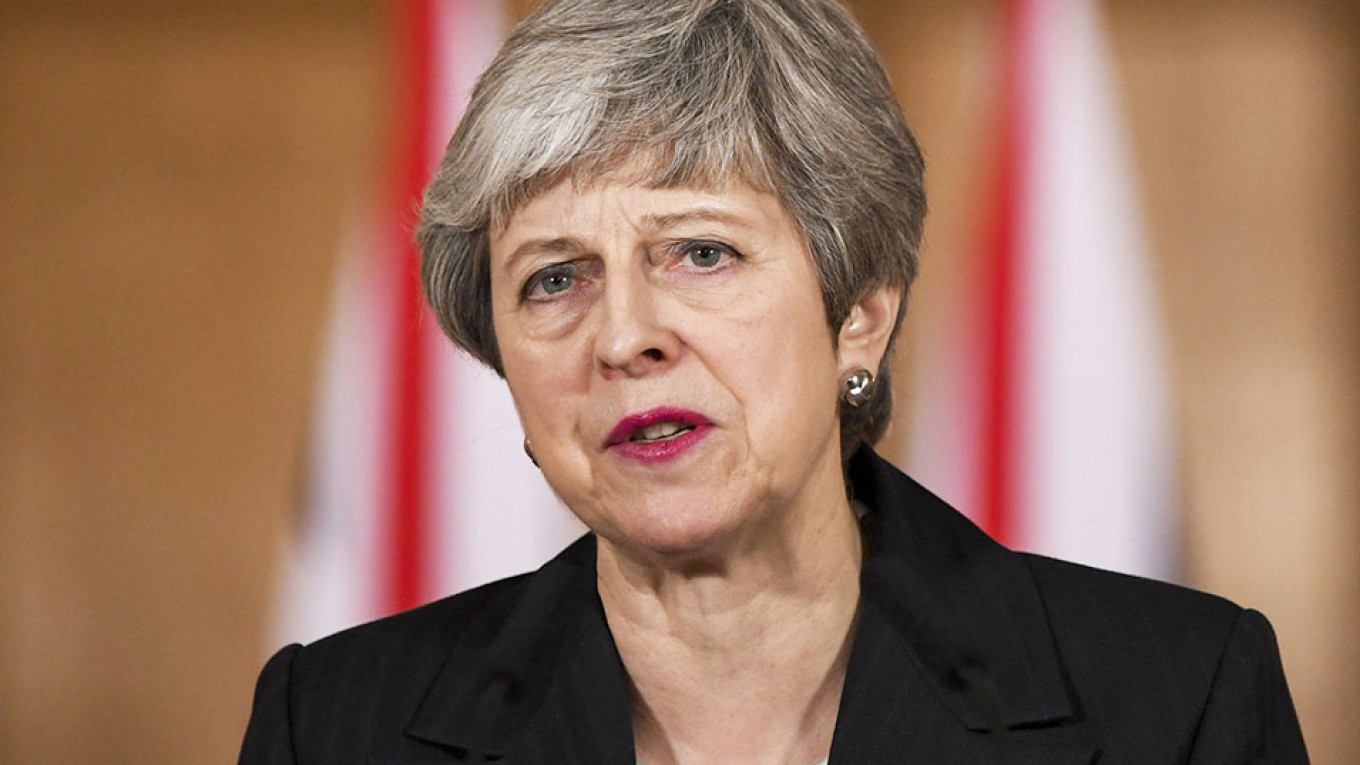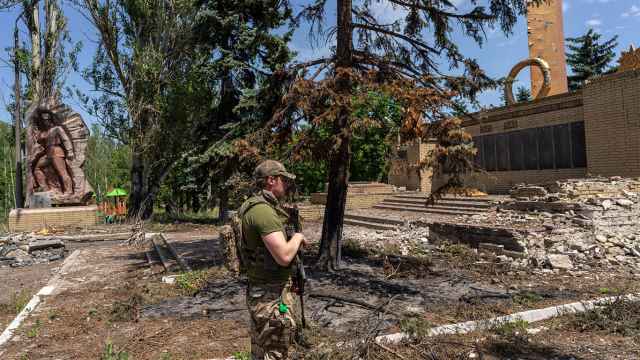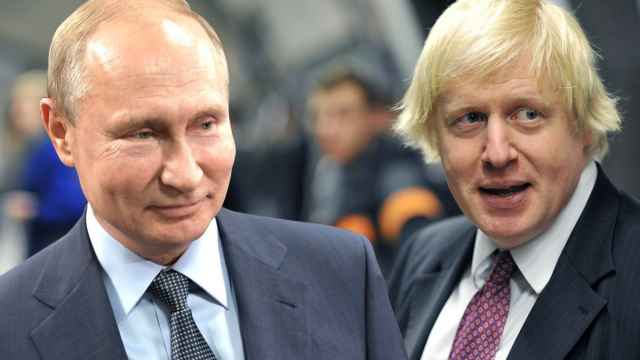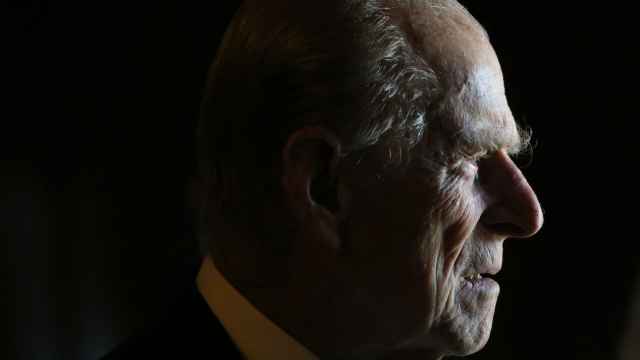U.K. Prime Minister Theresa May and Vladimir Putin clashed over the poisoning of a former spy with nerve agent in western England, ahead of a rare face-to-face meeting today with the Russian president.
May said she will tell Putin at the Group of 20 summit in Osaka, Japan, that he must stop destroying international conventions if he wants a mutually beneficial relationship with Britain, and hand over the suspects behind the Salisbury attack.
Putin said it was time to move beyond "this fuss about spies" and begin to normalize ties with Britain, again insisting there was no proof Moscow was behind the poisoning.
Relations between the U.K. and Russia have been in the deep freeze since the attack on Sergei Skripal and his daughter Yulia in March last year. The U.K. and its allies blamed Russian military intelligence. Russia has denied responsibility.
The meeting will be only the second time the leaders have held formal talks since May took office in 2016. May is standing down next month, and British officials are not expecting a breakthrough moment in Osaka. Instead, they aim to establish whether there is potential for improvements in relations with Russia.
“We have no argument with the Russian people,” May told reporters during her trip to Japan. “It is possible for us to have a different relationship with Russia, but Russia does need to stop its activity that undermines our collective security and undermines international treaties.”
Kremlin foreign policy aide Yuri Ushakov told reporters this week the sitdown with May was an important one.
“If leaders talk about sensitive matters, and quite a few of them have accumulated in our relations with the United Kingdom, if some opportunities are to be found for restoring our co-operation, we will only welcome this,” he said.
In the aftermath of the Salisbury attack, May rallied Britain’s allies around the world and they expelled 150 Russian diplomats in retaliation for the first use of chemical weapons in Europe since World War II.
The U.K. has identified two suspects in the poisoning who are linked to Russia’s GRU military intelligence agency. In January, the European Union imposed sanctions on Anatoliy Chepiga and Alexander Mishkin, who are alleged to have used the weapons-grade nerve agent “Novichok” in the attack.
May said one of the difficulties was Russia refuses to extradite its citizens to face trial overseas, but she said she would raise the case with Putin.
“I’m going to make absolutely clear the position the U.K. takes in relation to what happened in Salisbury,” May said. “These individuals should be brought to justice.”
May defended the face-to-face meeting. “It’s not business as usual and it can’t be business as usual with Russia until they stop the sort of acts we have seen them doing around the world," she said in a later interview with ITV.
Putin called for the U.K. to move on from the Salisbury dispute.
"All this fuss about spies and counterspies, it is not worth serious interstate relations," Putin said in an interview with the Financial Times. "The list of accusations and allegations against one another could go on and on. They say, ‘You poisoned the Skripals.’ Firstly, this must be proved."
Skripal survived the poisoning together with his daughter. Salisbury resident Dawn Sturgess died after being exposed to the nerve agent hidden in a perfume bottle thrown away after the attack.
A Message from The Moscow Times:
Dear readers,
We are facing unprecedented challenges. Russia's Prosecutor General's Office has designated The Moscow Times as an "undesirable" organization, criminalizing our work and putting our staff at risk of prosecution. This follows our earlier unjust labeling as a "foreign agent."
These actions are direct attempts to silence independent journalism in Russia. The authorities claim our work "discredits the decisions of the Russian leadership." We see things differently: we strive to provide accurate, unbiased reporting on Russia.
We, the journalists of The Moscow Times, refuse to be silenced. But to continue our work, we need your help.
Your support, no matter how small, makes a world of difference. If you can, please support us monthly starting from just $2. It's quick to set up, and every contribution makes a significant impact.
By supporting The Moscow Times, you're defending open, independent journalism in the face of repression. Thank you for standing with us.
Remind me later.






